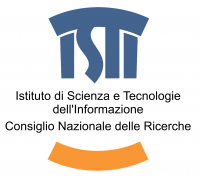J.Y Blaise
I.Dudek
X.Rodier
D. Lo Buglio
The recent move towards « digital humanities » has resulted in scientists producing massive – and heterogeneous – digital content, thereby opening new interdisciplinary research challenges. Typically, laser scanning, image-based modelling, LIDAR technologies are now quite widely used in various sub-fields of historical sciences, ending up with massive 3D content to store and post-process. In parallel, a growing amount of historical evidence (ranging from raw archival material to structured collections) is digitised and now made available on the net. Geospatial data is also easier to manipulate with open solutions like Google Maps or equivalent.
More data sets, more data acquisition procedures, more heterogeneity appears at first glance as a positive move – yet actors very well know that it also means more choices to make in terms of tools and methods, more interpretation steps to memorise if wanting to ensure scientific validity, more difficulties in making sense of it all once the data has been duly recorded.
The workshop wishes to illustrate these upcoming challenges through real cases, and to discuss how sub-fields of Information Sciences such as InfoVis (Information Visualisation), knowledge visualisation, or visual analytics can provide relevant methodological support in the analysis of complex, time – dependant data and information sets.
Focus will in particular be put on :
- Sensemaking inside massive and heterogeneous data sets.
- Comparative analysis approaches in one-site knowledge spaces as well as acrosssites.
- Modelling and visualisation of the time parameter, patterns of change on long time spans.
- Modelling and visualisation of “uncertainty” both at early stages of the investigation and inside end-line products.
The workshop is likely to be open on one hand to practical cases illustrating the benefits, bottlenecks and issues of emergent data acquisition procedures, and on the other hand to methods and “good practices” developed in the above mentioned sub-fields of Information Sciences when dealing with massive, heterogeneous, or questionable data sets. It should include beyond traditional presentations a collaborative discussion session centered on practical examples and references to share.


